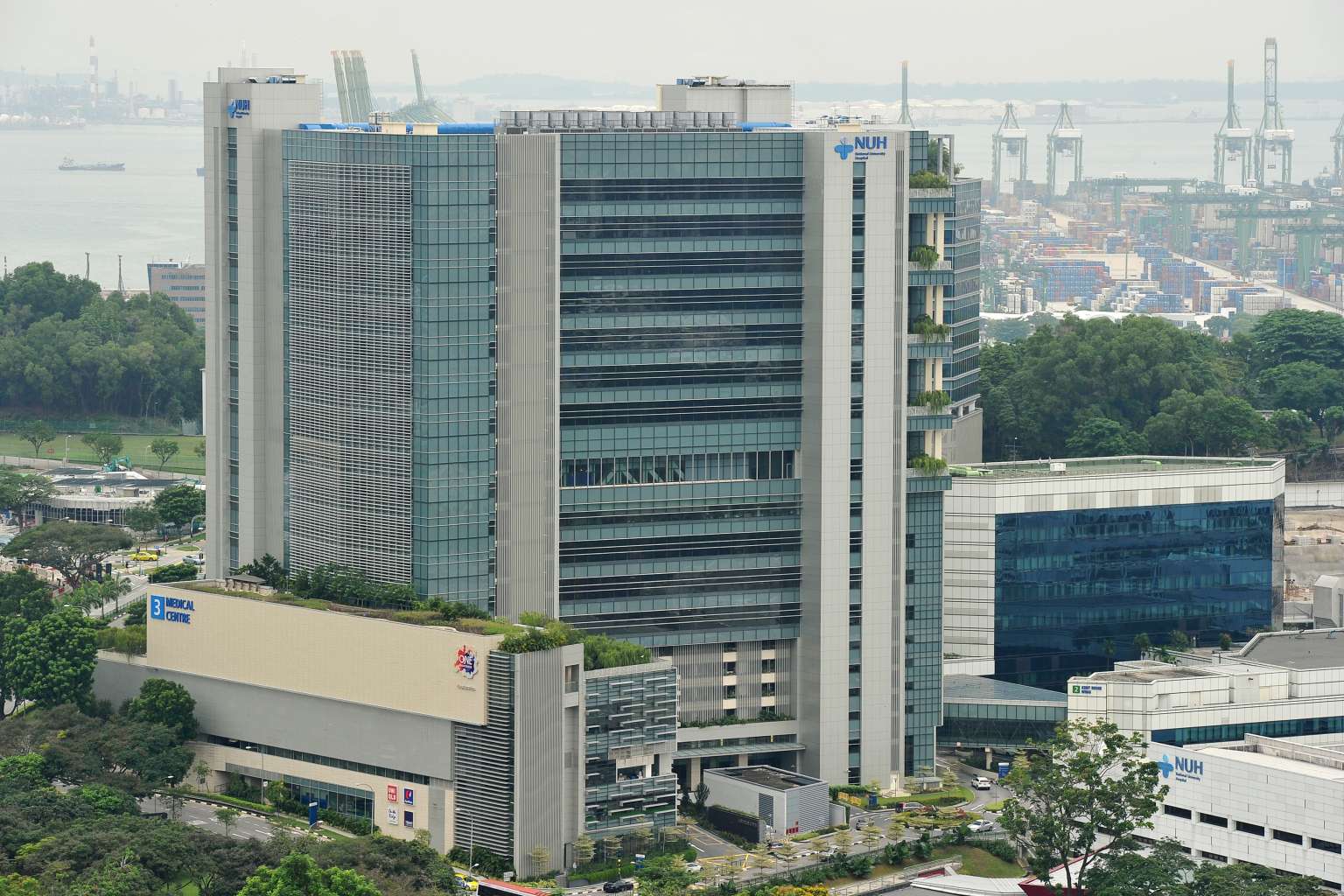More kids found with latent TB in NUH screening
They had been patients in ward where nurse was found to have the disease
Sign up now: Get ST's newsletters delivered to your inbox

Four more children who were warded at the National University Hospital between July and late last month have been found to have latent tuberculosis.
PHOTO: LIM YAOHUI FOR THE STRAITS TIMES
Four more children who were warded at the National University Hospital (NUH) between July and late last month have been found to have latent tuberculosis (TB).
The hospital has been recalling 178 children who had been long- stay patients in Ward 47 for TB screening since it found out on Nov 27 that one of its nurses working there had the disease.
The children were hospitalised between July, when the nurse sought treatment for a bad cough, and November, when she was confirmed to have TB.
NUH doctors had earlier said the recall of its patients from the paediatric ward was a precaution as the nurse had been wearing a mask when in the ward.
But earlier this month, a four-month-old boy became the first child patient found to have the bug.
So far, tests have been carried out on more than 130 of the children who stayed in Ward 47 at the time, of whom four others have now been diagnosed with latent TB, which means they harbour the bacteria but do not yet have the disease. They are therefore not infectious.
Without treatment, about 5 per cent to 10 per cent of people with latent TB will develop the disease some time in their lives, with half doing so within the first two years of infection. Treatment can further reduce their risk of getting the disease. There is a high rate of cure for people who have the disease, which usually affects the lungs, but can also affect the brain, kidneys or spine.
TB is spread through air droplets, usually when an infected person coughs, sneezes, laughs or even speaks. It usually requires significant exposure for someone to catch the bacteria.
However, because these were sick children - including 131 infants who are under the age of two and 34 who have received transplanted organs - their resistance may be lower, making them more prone to infection.
Transplanted patients are at higher risk of infection as their immune systems are weak due to the drugs they need to take to prevent rejection of the new organ. It is not known if any of the infected children are transplant patients.
An NUH spokesman said the children with latent TB will be treated with antibiotics for nine months. She added: "As with all medications, the antibiotic may have side effects which can be monitored. The patient will be advised by his or her doctor and monitored closely."
The nurse is receiving treatment and no longer infectious.
TB is endemic here and 1,252 people here have been diagnosed with it this year.
Symptoms include persistent coughing, fever, fatigue, chills, loss of appetite and weight loss. Left untreated, it can be fatal.
facebook.com/ST.Salma


